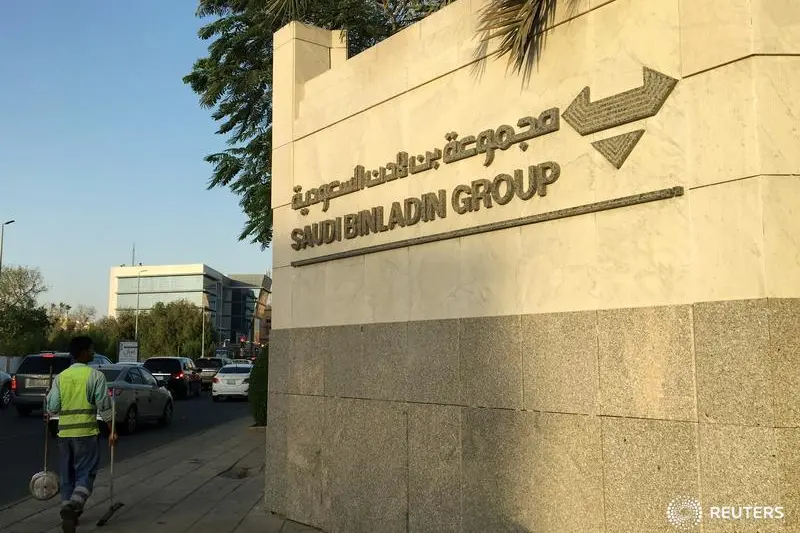PHOTO
LONDON/DUBAI- The Saudi Binladin Group is seeking a financial adviser for a restructuring of the group's debt, which could range between $20 and $30 billion, sources familiar with the matter said.
The move is the latest in state efforts to restructure the construction giant, in which the Saudi government took a roughly one-third stake from Bin Laden family members that were swept up in an anti-graft campaign that Riyadh launched in late 2017.
The company, which has dominated the construction sector for years, is crucial to the kingdom's plans for tourism and infrastructure projects aimed at diversifying the economy away from oil revenues by 2030.
The Binladin Group has sent a request for proposals to a select group of international advisers over the past few weeks to reorganize the debt of the whole group, said the five sources, speaking anonymously because the matter is private.
Two of the sources said the debt amounted to between $20 and $30 billion.
A Binladin group executive said he could not provide a comment on the matter when approached by Reuters.
The debt restructuring request is likely to be met with concern by Saudi banks bruised by several multi-billion-dollar corporate debt restructurings in recent years in the kingdom, one of the sources said.
Creditors had been expecting the finance ministry to revive Binladin with government loans. They are wary of any sign of a similar outcome to a situation involving another construction giant, Saudi Oger, which required banks to make painful write-offs on their loans after a government effort to save the firm failed.
Binladin, whose official name was changed to Binladin Group Global Holding after the state-led restructuring, is now 36.22% owned by finance ministry subsidiary Istidama and 63.78% by Binladin Company for Development and Commercial Investment, Reuters reported earlier this year.
Only two Bin Laden brothers, Saad and Abdullah, are represented on the new nine-person board, in a break from the family's earlier exclusive control before brothers Bakr, Saleh and Saad were detained under the anti-graft purge that ensnared hundreds of business people and government officials.
Even before 2017, the conglomerate had faced financial challenges because of stalled projects and delayed payments as the sector suffered from a slump in oil prices. The firm was temporarily excluded from new state contracts after a crane accident killed 107 people at Mecca's Grand Mosque in 2015.
(Additional reporting by Stanley Carvalho and Marwa Rashad; editing by Emelia Sithole-Matarise) ((Davide.Barbuscia@thomsonreuters.com; +971522604297; Reuters Messaging: davide.barbuscia.reuters.com@reuters.net))





















